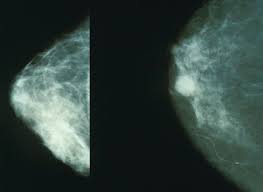
Edinburgh breast cancer researchers advance understanding of response to treatment.
Scientists at the Edinburgh Cancer Research Centre have discovered that both of the two main types of breast cancer respond in the same way on a molecular level to endocrine therapy.
Breast cancers fall into two main categories: ductal, which makes up the vast majority of cases (85-90%), and lobular, which makes up around 10-15% of cases. Ductal and lobular breast cancers look and behave very differently under a microscope and have been shown in previous studies using laboratory and mouse models to have a different molecular response to endocrine therapy.
This latest research, funded by Breakthrough Breast Cancer, contradicts previous findings in that the team found that both lobular and ductal cancers respond similarly to letrozole, a type of endocrine therapy.
This is also the first study to compare a molecular response to this treatment in patient tumour samples during their treatment course and, interestingly, the molecular differences between lobular and ductal cancers remained unchanged throughout. The authors suggest that this demonstrates how stratifying patients for treatment based on their molecular characteristics may not be as simple as researchers originally thought.
The research was published in the journal Cancer Research.
Study team leader, Dr Andrew Sims, Edinburgh Cancer Research Centre, said:
"We found that despite lobular cancers being clearly different both histologically (down the microscope) and molecularly (which genes are turned on and off), we have shown that the way in which they respond to endocrine treatment is virtually the same.
"This goes against what was previously known and demonstrates how important it is to investigate molecular characterisation throughout treatment in order to fully understand how different patients will respond to certain treatments."
Dr Matthew Lam, Senior Research Officer at Breakthrough Breast Cancer, said:
"Making treatment decisions based on the molecular characteristics of an individual patient’s tumour is the best way to ensure that each person is receiving the most effective treatment for them. But, in order to do that we must learn more about how and why different breast cancers respond during treatment, which is why this type of research is so important.
"As we move closer towards a future of personalised medicine it is the analysis of how different types of breast cancer behave that we need to be focusing on in order to ensure clinicians are best placed to make informed decisions on what would be the most appropriate treatment for an individual woman."
Breakthrough Breast Cancer funded a Research Unit at the University of Edinburgh from 2008-2013 and has now committed to further the research programme based in Edinburgh. Over the next five years, Professor Mike Dixon and his team will work to understand how the most common form of breast cancer, ER-positive, becomes resistant to drugs.
The ultimate aim of this research is to develop tests that will predict whether or not a patient will respond to treatment. Doctors who are armed with these tests will be able to 'personalise' treatment courses to individual breast cancer patients, selecting therapies that give them the best chance of survival.


 Man, 44, seriously injured in hospital after crash between Comrie and Rosyth
Man, 44, seriously injured in hospital after crash between Comrie and Rosyth
 John Swinney announces SNP leadership bid
John Swinney announces SNP leadership bid
 Closures on A92 from TONIGHT for roadworks
Closures on A92 from TONIGHT for roadworks
 14°C
14°C
 12°C
12°C
 16°C
16°C